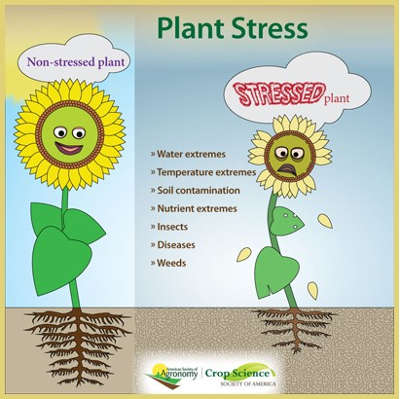
Life planted in soil may seem idyllic, but did you know plants get stressed? The August 22nd Sustainable, Secure Food blog explains environmental stressors for plants and research towards relief.
“Unlike humans who can move out of the sun and into the shade if they get too hot, a plant doesn’t have that luxury,” writes Wendy Zellner. Zellner is a plant physiologist at the University of Toledo.
Stressors for plants include:
- Temperature (extremes of hot or cold)
- Water resources (drought or flood)
- Chemical (contaminated soils or improper fertilizer application)
- Insects
- Microbial (mildews, fungi, viruses, and bacteria)
- Weeds
Zellner and others are working to find ways to increase plant resilience to these stressors. “My research focuses on one main component often missing from the healthy, balanced diet of a plant called silicon,” she writes. “This element, when absorbed by the plant, helps protect it from many of the stresses mentioned. However, just feeding the plants silicon won’t completely alleviate stress. We’ve also researched the best way to get plants to absorb silicon.”
Click here to see more...